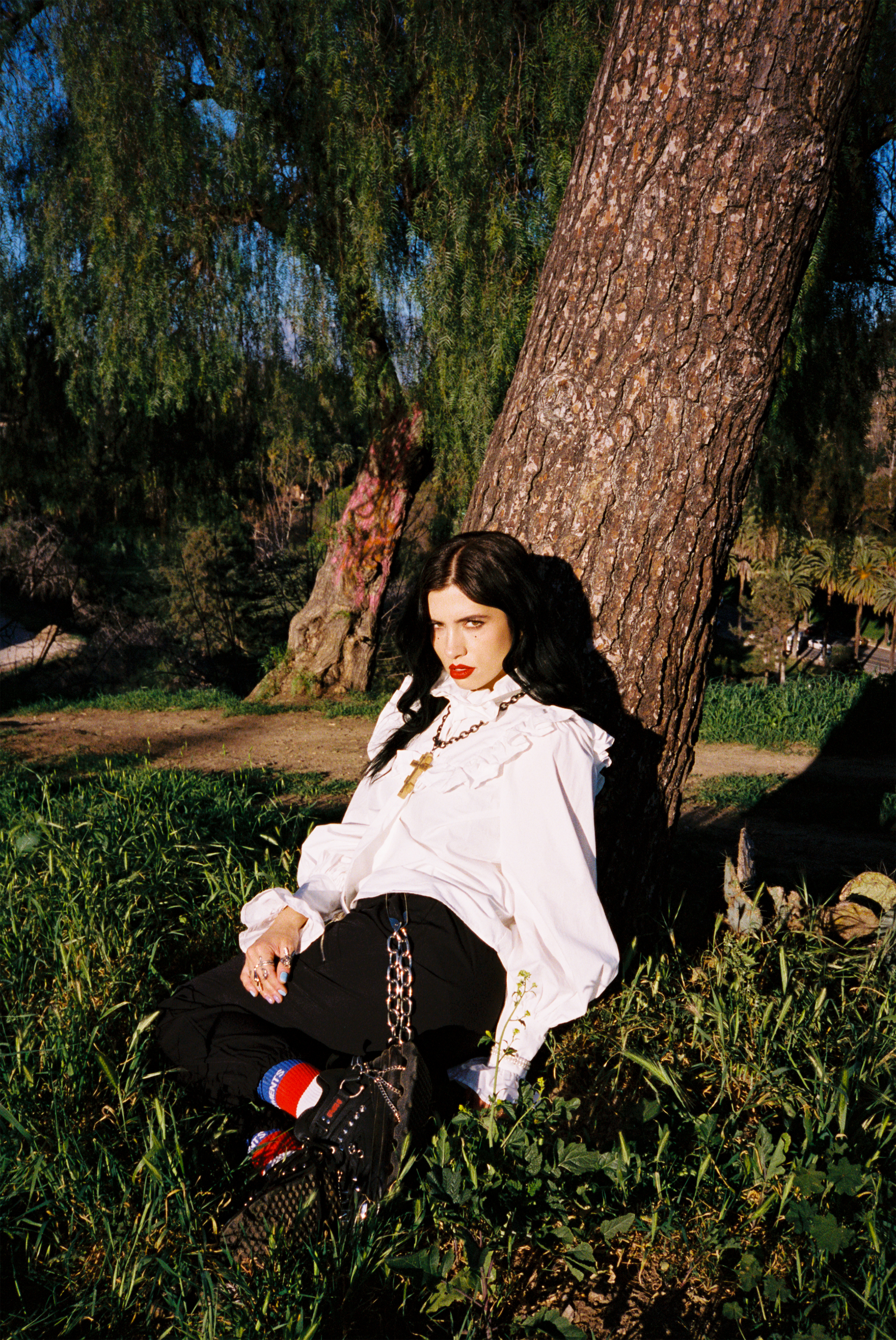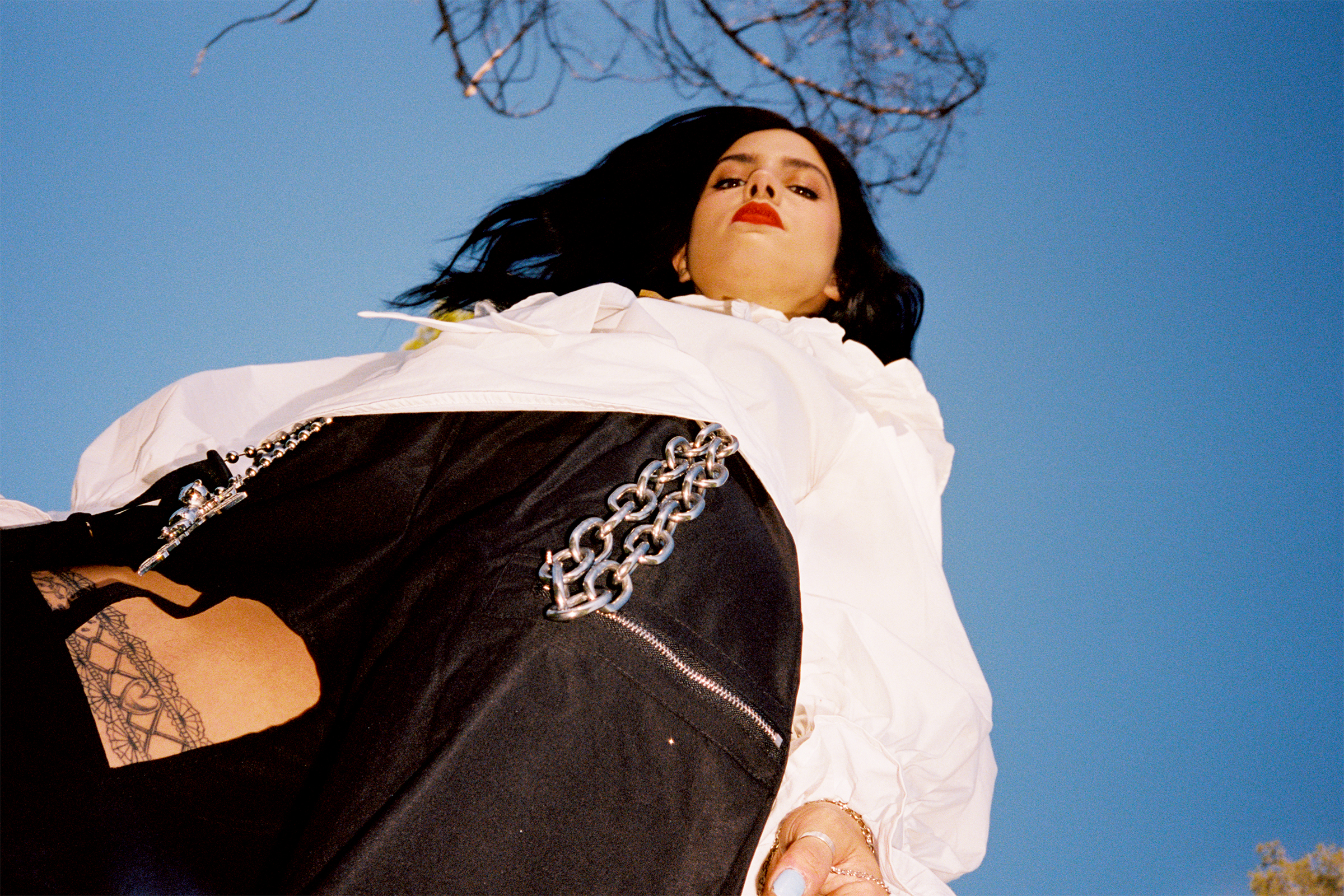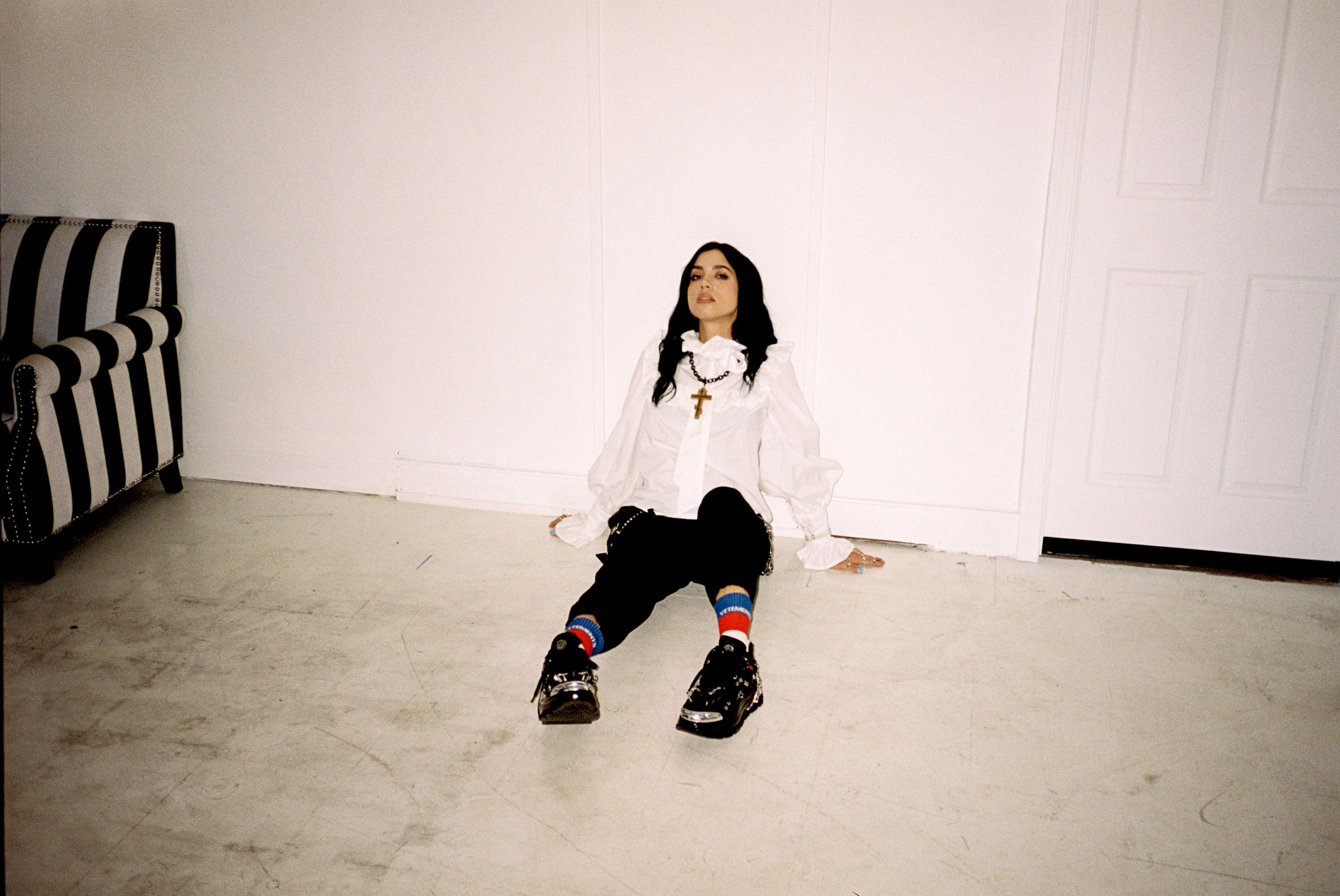
A version of this article was published in TIME’s newsletter Into the Metaverse. Subscribe for a weekly guide to the future of the Internet. You can find past issues of the newsletter here.
Nadya Tolokonnikova has held many titles over the past decade: performance artist, feminist, Pussy Riot co-founder, prisoner, foreign agent (according to the Russian government), poet, mother. Some things she is not: a tech mastermind, a scam artist, a hype entrepreneur.
But this month, Tolokonnikova, 32, is launching UnicornDAO, a cryptocurrency investment fund and the first component of the “Pussyverse” she’s building in Web3. She sees the move as a new phase for her as a leader building the feminist future she has been fighting for since she was a teen. “For the first time in years, I don’t feel like I’m the only one person in the room who is encouraging people to think further than just the electoral cycle,” she says over Zoom from an undisclosed location.
Because of her political status as a designated foreign agent in Russia, she has to be cautious about sharing her whereabouts publicly. But her excitement is palpable, even through a screen. “It’s the first time when anarchy is not just a promise, it’s actually something achievable,” she says. “Anarchy means, for me, decentralized, self-governing systems.”
For a Russian watching her country’s economy get battered by Western sanctions following President Vladimir Putin’s invasion of Ukraine, those self-governing systems make more sense each day. Overnight, interest rates sky-rocketed, and the value of the ruble plummeted as many Russian banks were cut off from the traditional global financial system.
Cryptocurrencies are suddenly looking much more stable—despite criticism of volatility. Tolokonnikova is well-prepared for the new attention on crypto. “For the first time in my life, I’m able to use economic tools as my paints and brushes,” she says.
And she did: in the days following the late-February invasion of Ukraine, she helped launch UkraineDAO, a fundraising campaign that racked up almost $7 million in cryptocurrency donations in less than a week, with funds channeled towards Ukrainian aid organizations. “It’s really important for me to be a good activist and be an influential artist to be able to maintain my anti-Putin voice. In that way, it’s all inherently connected,” she says.
Americans might balk at her interest in a concept like anarchy, but for Tolokonnikova, it represents unassailable freedom and equality—something that, as an outspoken Russian, she has been punished for wanting. Born in the city of Norilsk, Tolokonnikova studied philosophy and art, engaging with progressive politics from a young age. In 2012, she was sentenced to two years in prison and jailed outside Moscow, forced to leave her 4-year-old daughter at home. She says she still suffers PTSD from her imprisonment. Her crime: a guerrilla musical performance—with her feminist group Pussy Riot—staged at a Moscow cathedral, called “Punk Prayer: Virgin Mary, Please Get Rid of Putin.” Since then, Tolokonnikova has been one of the most visible faces of political dissent in Russia, while pursuing a punk music career, fundraising for feminist causes like reproductive rights in Texas, and most recently becoming an NFT artist. (For her first collection, she auctioned off copies of the original 2012 prison sentencing documents, graffitied with her own colorful drawings.)

What Tolokonnikova created with UkraineDAO and is launching now with UnicornDAO are examples of Web3’s buzzy new organizing principles. DAO stands for “decentralized autonomous organization,” and like a casual hedge fund or a group chat with a pooled crypto bank account, DAOs are made up of collections of individuals who are buying in to a shared vision or purpose. The hierarchies are ostensibly flat; the decisions about activities and investments are made based on conversation, often on Discord; and the critical binding component is a so-called “smart contract,” a document that lives on the blockchain. This is not Tolokonnikova’s first foray into collective action; in many ways, Pussy Riot itself was an early DAO, a loose and leaderless organization with a singular mission, many members, and equality of decision-making in its ethos.
UnicornDAO will be primarily an art collectors fund, where DAO members will be asked to contribute to the pool in order to invest in projects from female and non-binary artists. It will also have a non-profit arm dedicated to incubating the careers of those artists, helping them navigate Web3 opportunities and the NFT industry. Appropriately, its founding team is all-female, including co-founder Rebecca Lamis.
Today, DAOs are big business. A DAO social club called Friends With Benefits was recently valued at $100 million by investors (including trend-setting venture capital firm Andreessen Horowitz). An investment bloc called ConstitutionDAO raised $17 million to bid on a copy of the U.S. Constitution. (Their bid failed, but their notoriety was secured.) PleasrDAO has spent millions from their shared coffers on rare collectible NFTs. Each is defined only by its members and their values. Given the malleability of the form, backers believe DAOs could be used as a blueprint for the future structure of corporations, or even to reimagine hedge funds. Venture capital firms have sunk millions into existing DAOs, and estimates show billions of dollars may currently be under DAO management.
Tolokonnikova’s UnicornDAO has a distinct mission. It is focused on the NFT market—and in rebalancing the scales for women-identifying and non-binary artists in a space that is already reflective of problematic gender norms. Currently, art by women sells for 50% less than that of art by men, and as few as 5% of NFT sales go towards projects from female artists, according to Tolokonnikova and her group’s research. That means many artists are missing out on a major financial opportunity: in 2021, around $41 billion worth of cryptocurrency was associated with NFTs, and in a January report, Jefferies Bank forecasted the NFT market capitalization will rise to over $80 billion in 2025.
For Tolokonnikova, it’s also personal. “I had a really unpleasant interaction with a couple of collectors who thought they could take advantage of me just because they’re collecting my artworks,” she says. “It definitely does not fly with me. But I’m bringing a lot of girls into this space. And I don’t want them to experience something like that.” Plus, she wants to make sure that girls like her now-14-year-old daughter don’t feel limited by the “boys’ club” mentality that can prevail in tech. (Consider: her most recent song, “Punish,” which introduces a “vengeful hero who’s going to punish men for wrongdoings,” she says, smiling.)

“I fell into a trap that’s typical for a girl; that girls are not supposed to do anything tech-related,” she says. Even as an artist, she’s struggled to prove her worth. “Just because of my gender, and the way I look—because I do enjoy wearing short skirts—there could still be a moment where you’re dismissed immediately, and alienated and objectified,” she says. Her answer: building what she calls “infrastructure for a feminist revolution on the blockchain.”
UnicornDAO is not the first crypto-based collective focused on feminism. Projects like HerstoryDAO, Komorebi Collective, and the NFT collection World of Women have sought to establish similarly equal spaces. But with Pussy Riot’s fame attached, and the backing of blockchain payments platform MoonPay and figures like Guy Oseary and Justin Aversano, Bored Ape Yacht Club creators Yuga Labs, artists Beeple and Pak, and Gary Vee’s VaynerFund, UnicornDAO is expected to make a splash. Already, they have planned events at the annual SXSW conference in Texas in March.
UnicornDAO is part of a larger vision—which Tolokonnikova hopes will grow into the virtual Pussyverse, a still-undefined home in Web3 where women, nonbinary, and queer artists and activists will be the dominant forces. Its launch also marks the ten-year anniversary of that infamous protest performance at the Moscow cathedral. “Our ultimate goal always is to change the world, honestly. And create a good art piece. And I’d say that traditional Web2 platforms, they’re not really good [for that],” she says. Platforms owned by corporations—whether traditional auction houses like Sotheby’s or streaming platforms like Spotify or YouTube—give creators little control over the future and value of their work. The decentralized marketplace of NFTs preserves more of it. “I’m consciously trying to rework mistakes that were made in previous systems, especially in terms of gender equality,” she says.
Tolokonnikova’s daughter is already creating her own collection of NFT art, and Tolokonnikova is clearly proud. “She already has a couple of wallets; it’s pretty impressive,” she says. “She does her investigation on her own, then she comes back to me and shares her insights and what she believes is going to be the next big thing.” Tolokonnikova wants a world where her daughter won’t feel intimidated by technology, and won’t be demeaned by structures that minimize women’s work. So she’s building it.
Subscribe to Into the Metaverse for a weekly guide to the future of the Internet.
More Must-Reads from TIME
- Cybersecurity Experts Are Sounding the Alarm on DOGE
- Meet the 2025 Women of the Year
- The Harsh Truth About Disability Inclusion
- Why Do More Young Adults Have Cancer?
- Colman Domingo Leads With Radical Love
- How to Get Better at Doing Things Alone
- Michelle Zauner Stares Down the Darkness
Write to Raisa Bruner at raisa.bruner@time.com